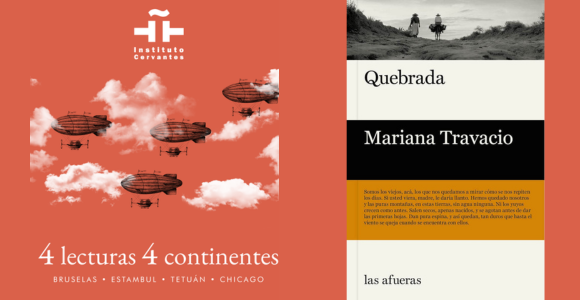Quebrada
 IC Bruselas
IC Bruselas
In her novel Quebrada (Las afueras, 2022), Mariana Travacio tells the story of Lina, a woman who, in complete solitude, decides to leave the house she shares with her husband, driven by the dream of seeing the sea. Her husband, Relicario, reluctant, chooses to stay to avoid abandoning the dead they have buried in the village because "you don't abandon the dead." However, he soon realizes that his life has no meaning without Lina, so he acquires a donkey to carry the coffins and sets off, attempting to follow in his wife's footsteps.
From this point, the story diverges, breaks, and the characters' fates are left at the mercy of a destiny that, irreparably, leads them toward death.
Quebrada also recounts, in its second part, the life of Lina and Relicario's son. The second narrator is an orphaned man who knows nothing but the village and who, observing the events unfolding before his eyes, eventually discovers that "having a family means returning home and knowing someone is waiting for you."
The novel is a work where love and loyalty are marked by displacement, pain, and loss. As she did in Como si existiese el perdón, the Argentine writer once again immerses us in an ancestral world to deliver a novel with a classic feel—both violent and poetic—in which nothing is lacking and nothing is superfluous.
Mariana Travacio (Argentina, 1967) holds a degree in Psychology from the University of Buenos Aires, where she worked as a professor in the Forensic Psychology department. She earned a Master's in Creative Writing from the National University of Tres de Febrero. Her short stories have been published in various anthologies and magazines, and she has received numerous literary awards in national and international competitions.
This is the second session in 2025 of the shared activity "4 Readings, 4 Continents," the virtual book club organized by the libraries of the Cervantes Institutes in Chicago, Tetouan, Brussels, and Istanbul. This year's program features four works dealing with travel literature, and, like previous editions, it includes a specialized moderator, a blog for commenting on the novel and the author, and a virtual meeting.
